Today Current Affairs: 29th August 2022 for UPSC IAS exams, State PSC exams, SSC CGL, State SSC, RRB, Railways, Banking Exam & IBPS, etc
Table of Contents
F/A 18 Super Hornet Fighter Jets:
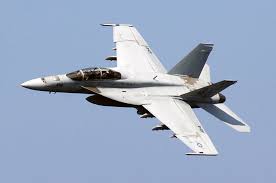
Ahead of Commissioning India’s first Indigenous Aircraft Carrier (IAC) Vikrant, the US aviation major Boeing has proposed Indian Navy to choose its F/A 18 Super Hornet fighter jet.
- The F/A-18 Super Hornet Block III is the world’s most advanced, combat proven, multi-role frontline naval fighter that offers unique and differentiated capabilities and full compatibility with Indian Navy carriers.
- It has been designed and built for carrier operations, and is fully compliant with INS Vikramaditya and INS Vikrant aircraft carrier.
- F/A-18 will be able to operate on the deck, in the hangar and on the lifts of the Indian Navy’s aircraft carriers.
- It will help further the interface between manned and unmanned systems in a carrier environment.
- The Super Hornet’s Precision Landing Mode software is specially designed to reduce pilot workload while landing on the Indian Navy’s Vikramaditya carrier by maintaining the proper glide slope and proper approach speeds.
- It has fully redundant systems and is independent of the carrier’s optical landing system.
- F/A-18 Super Hornet is in single-seater (E-Variant) and two-seater variant (F-Variant), and both variants are carrier compatible to perform the full range of combat missions and can fully operate from the carrier deck.
- The two-seater is also a capable trainer aircraft – both ashore and carrier borne.
Arth Ganga Project:

Director General of the National Mission for Clean Ganga spoke about the Arth Ganga model during World Water Week 2022.
- ‘Arth Ganga’ implies a sustainable development model with a focus on economic activities related to Ganga.
- PM Modi first introduced the concept during the first National Ganga Council meeting in Kanpur in 2019, where he urged for a shift from Namami Gange to the model of Arth Ganga.
- Under Arth Ganga, the government is working on six verticals:
- The first is Zero Budget Natural Farming, which involves chemical-free farming on 10 km on either side of the river, and the promotion of cow dung as fertilizer through the Gobardhan scheme.
- The Monetization and Reuse of Sludge & Wastewater is the second, which seeks to reuse treated water for irrigation, industries and revenue generation for Urban Local Bodies (ULBs).
- Arth Ganga will also involve Livelihood Generation Opportunities, by creating haats where people can sell local products, medicinal plants and ayurveda.
- The fourth is to increase public participation by increasing synergies between the stakeholders involved with the river.
- The model also wants to promote the cultural heritage and tourism of Ganga and its surroundings, through boat tourism, adventure sports and by conducting yoga activities.
- Lastly, the model seeks to promote institutional building by empowering local administration for improved water governance.
World Water Week:
- World Water Week is an annual conference on global water issues which is held in the last week of August every year.
- It was started in 1991 and initially part of a public water festival in the Swedish capital, Stockholm.
Stockholm International Water Institute (SIWI) is the organizer of World Water Week. - World Water Week is an opportunity to explore water aspects of challenges like the climate crisis, food security, energy, and many other topics.
- The week is also taken as an opportunity to discuss and accelerate progress toward the Sustainable Development Goal 6 (SDG6), which is about clean water and sanitation for all.
- The theme for World Water Week 2022 is “Seeing the Unseen: The Value of Water.
Indigenous Indian Light Tank Zorawar:
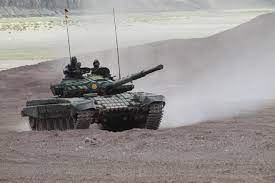
With the experience of deploying armour at an altitude of 15,000 ft. to outmanoeuvre the movement of Chinese forces during the stand-off in eastern Ladakh, the Indian Army is prioritising the procurement of the indigenous Indian light tank named ‘Zorawar’, for deployment in the mountains.
- In addition to the light tank, the Army will induct niche technologies such as loitering munitions, anti-drone capabilities and next generation Intelligence, Surveillance and Reconnaissance (ISR) capabilities.
- The recent experiences along the northern borders have shown that armour equipment profile is one of the most prominent factors in defining the operational capability of land forces.
Justice Uday Umesh Lalit : 49th Chief Justice Of India
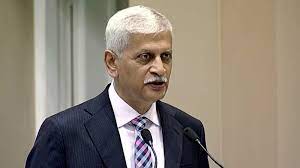
Justice Uday Umesh Lalit has been sworn-in as Chief Justice of India.
- President Draupadi Murmu will administer him oath as the 49th Chief Justice of India at Rashtrapati Bhawan.
- Justice UU Lalit will be in office for 74 days, a tenure shorter than average.
- Justice Lalit was involved in some landmark judgements in past and will also handle some major cases in his tenure as Chief Justice.
- In past, he was involved in the landmark judgement in the Triple Talaq case.
- He practised in the Bombay High Court till 1985 and moved to Delhi in 1986.
Vishnugad Pipalkoti Hydro Electric Project (VPHEP):
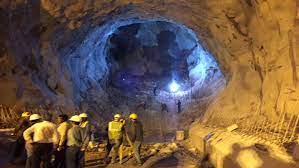
An independent panel of the World Bank is considering a plea by residents of Haat village, Chamoli district, Uttarakhand to investigate environmental damage from the under-construction Vishnugad Pipalkoti Hydro Electric Project (VPHEP) in the district.
- The 444-MW VPHEP is being built by the Tehri Hydropower Development Corporation (THDC), a partially State-owned enterprise.
- The project is primarily funded by the World Bank and was sanctioned in 2011.
- It is proposed to be completed in June 2023.
- About 40% of the funds for the $792 million project (₹64,000 crore approx.) has already been disbursed.
- Residents in their complaint have said muck dumping from the dam threatens the local Lakshmi Narayan Temple, which is deemed to be of historical and cultural importance by the Archaeological Survey of India (ASI).
Zero Carbon Emissions By 2070:
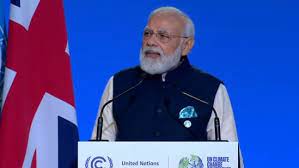
Achieving net zero carbon emissions by 2070, a target that Prime Minister Narendra Modi committed to in Glasgow in 2021, could boost India’s economy by 4.7% above the projected baseline growth in GDP terms by 2036, worth a total of $371 billion.
- This was stated by a report commissioned by the High-level Policy Commission on Getting Asia to Net Zero.
- This could create as many as 15 million new jobs by 2047.
- The Getting India to Net Zero report, as it is called, contains new research and modelling, and finds that policies to initiate the clean energy transition will be crucial in determining when India achieves net zero emissions and how much it could benefit from it.
- Positive economic impacts are driven in part by an improved trade balance amounting to $236 billion due to reduced demand for fossil fuels.
- Ending new coal as soon as possible by 2023 and transitioning from unabated coal power by 2040 would be particularly impactful to get India to net zero emissions sooner.
- By reaching net zero by 2050, India could boost annual GDP by as much as 7.3% ($470 billion), and create nearly 20 million additional jobs by 2032, compared with current policies.
- Net zero emissions by 2070 would require an economy-wide investment of $10.1 trillion from now; 2050 calls for $13.5 trillion, the research finds.
Section 9A In The Representation Of The People Act, 1951:
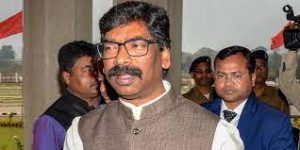
Uncertainty looms large over Hemant Soren’s continuation as Jharkhand Chief Minister as he is likely to be disqualified by the Governor as Member of the Legislative Assembly; the Governor has received the Election Commission of India’s opinion on the question.
- The case against him has its roots in a mining lease that he gave himself as a Minister for Mines in 2021.
- The BJP complained to the Governor on February 11, 2022, that this act was in violation of Section 9(A) of the Representation of the People Act, 1951.
- On August 25, the ECI wrote to the Governor that Mr. Soren could be disqualified under Section 9(A).
- The awarding of a mining lease to himself was a brazen act of self-service, misuse of office and breach of people’s trust.
Section 9A in The Representation of the People Act, 1951:
- Section 9A in The Representation of the People Act, 1951 deals with Disqualification for Government contracts, etc.
- It says that “A person shall be disqualified if, and for so long as, there subsists a contract entered into by him in the course of his trade or business with the appropriate Government for the supply of goods to, or for the execution of any works undertaken by, that Government.”
CBI Conviction Rate:
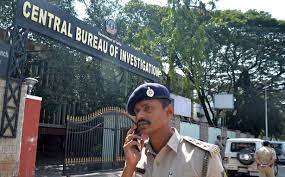
The Central Bureau of Investigation (CBI) recorded a conviction rate of 67.56% in 2021, compared to 69.83% in 2020, according to the Central Vigilance Commission (CVC) annual report.
- The CBI registered 680 regular cases and 67 preliminary enquiries last year, while it had registered 589 regular cases and 87 preliminary enquiries in 2020.
- Last year, court judgments were received in 360 cases, which included 202 convictions, 82 acquittals and 15 of discharge from allegations.
- In 61 matters, cases were disposed of on other reasons. At the end of the year, a total of 10,232 cases were pending in various courts.
- In 2021, investigations were pending in 982 cases, whereas the figure stood at 1,117 the previous year.
- The probe was finalised in 798 regular cases and 86 preliminary inquiries last year.
- Of the total cases instituted last year, 457 pertained to various charges under the Prevention of Corruption Act.
- They involved 549 public servants, of whom 221 were gazetted officers.
- As per the report, 102 cases were registered for demand of bribe by public servants for showing favour and 40 for possession of disproportionate assets.
- Of the 747 cases, — 133 were taken up on court directions and 37 on references from State governments and Union Territories.
- The CBI said that in 2021-end, 177 cases were pending for grant of sanction for prosecution under Prevention of Corruption Act.
Indian Economy:

Finance Minister Nirmala Sitharaman has said that the Indian economy will grow at the rate of 7.4 percent in the current fiscal as well as in the next year.
- She said, International Monetary Fund and the World Bank have projected India’s growth to be the fastest for the next two fiscal years, and their estimates are in sync with that of the Reserve Bank of India.
- On the issue of freebies, Ms Sitharaman said there is a need for a rigorous debate on the freebies side.
- She stressed that political parties making pre-poll promises should make budgetary provisions for taking care of the expenditures and not push the burden on other entities.
Swachh Sagar, Surakshit Sagar Campaign:
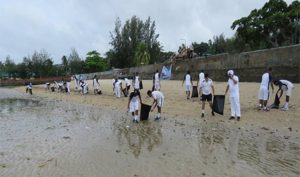
Union Minister of Environment participated in Swachh Sagar, Surakshit Sagar Campaign at Puducherry.
- “Swachh Sagar, Surakshit Sagar/Clean Coast, Safe Sea” Campaign, is a 75-day citizen-led initiative, aimed at improving the coastal and ocean health via community action.
- The campaign began on July 5, 2022, and will culminate on 17th September 2022 – International Coastal Clean-up Day.
- The three strategic underlying objective of the Campaign is to alter and save the environment through behaviour change.
- The campaign’s three overarching goals are:
- Consume Responsibly,
- Separate waste at home, and
- Dispose of waste responsibly.
- The campaign is spearheaded by Ministry of Earth Sciences (MoES) in partnership of Ministry of Environment Forest and Climate Change (MoEFCC), Indian Coast Guard, National Disaster Management Authority (NDMA), other central ministries/organisation and other social organizations and educational institutions.
- The coastal clean-up campaign is being taken at 75 beaches along the coast line of with average 75 volunteers for every kilometre of coastline.




